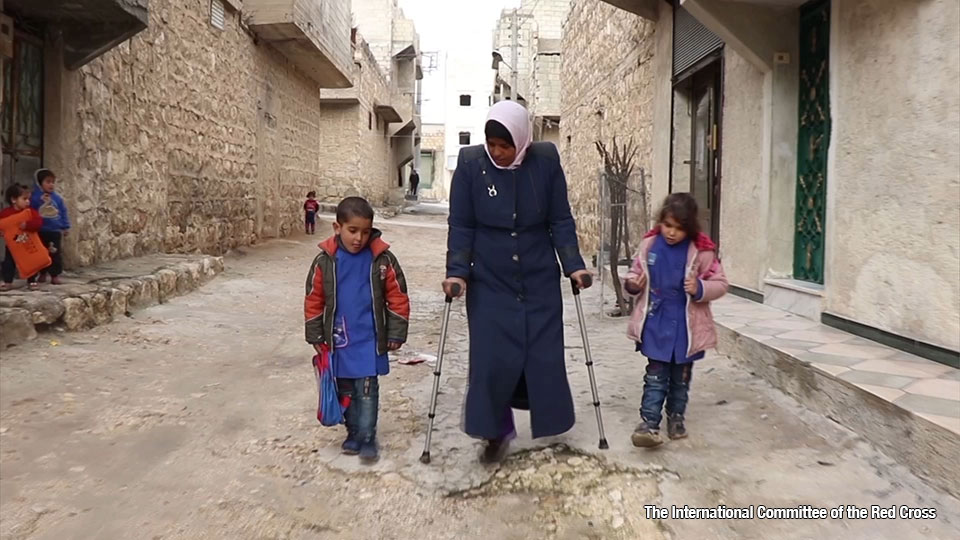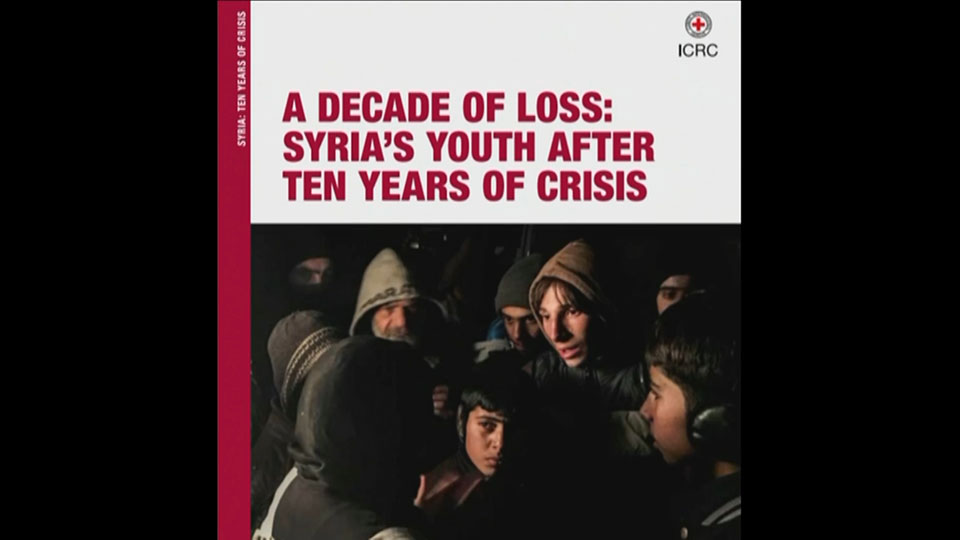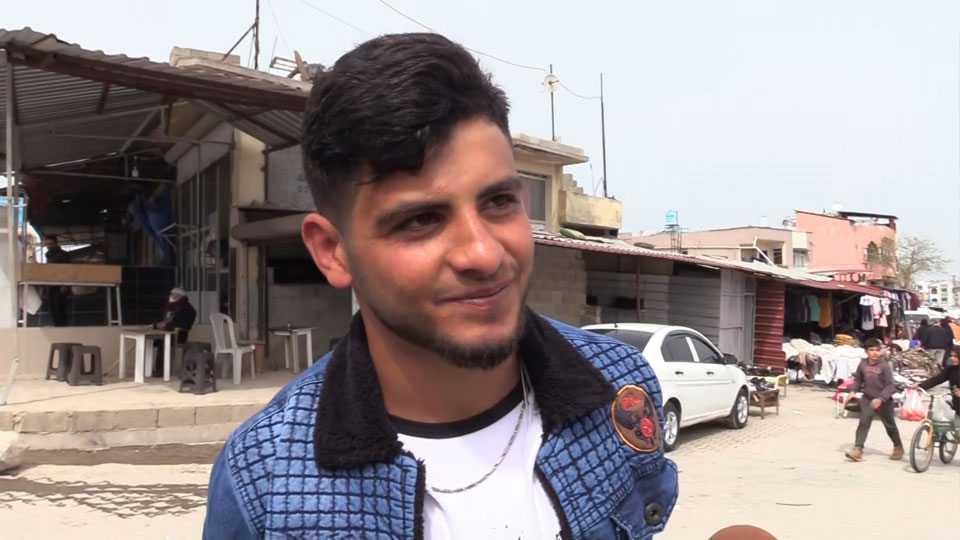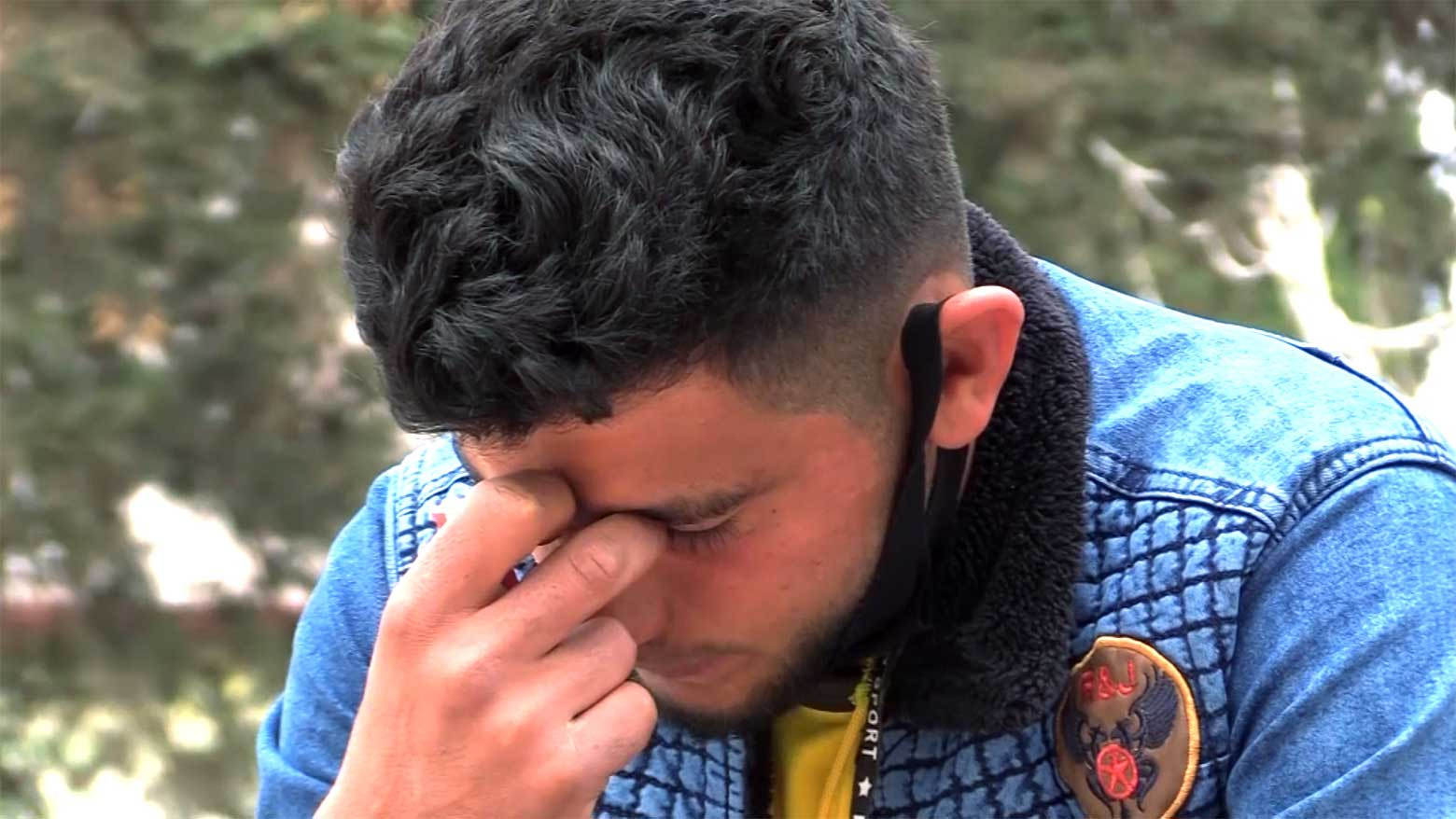"Ten years ago, we had everything: gas canister, diesel, lifelines. Now, we are cold and hungry, and life has changed," says Mouna Shawat in a video released by the ICRC. The 33-year-old mother of two lives in the northern city of Aleppo, which became the center of a severe humanitarian crisis during the relentless conflict.
The civil war began when Mouna was in her twenties. She lost a leg when a roadside bomb exploded several years ago. The trauma, coupled with the incessant violence, has had a lasting psychological effect. "When my depression increased, I started getting panic attacks, I would stay completely silent for two or three days, unable to talk to anyone," she explains.

The ICRC's report was released to coincide with the 10th anniversary of the protest movement against the regime of President Bashar al-Assad. It surveyed 1,400 Syrians aged between 18 and 25. Some are still in the country. Others are in Lebanon and Germany. Like Mouna, nearly 60 percent of respondents in Syria say they are struggling with depression over the past year.
The Syrian Observatory for Human Rights says the civil war has claimed more than 388,000 lives, of which about 30 percent are civilian. Among the young people the ICRC surveyed in Syria, 47 percent have lost an immediate family member or close friend in the conflict. What's more, as many as 85 percent say they have had "no or very limited access to basic necessities," including water and electricity.

Half the population displaced
The United Nations reports the conflict has forced about 6.6 million people to seek asylum in other countries, mostly in the Middle East, while another 6.7 million have been displaced internally. Staggeringly, the two figures account for half of Syria's population.
Khaled Fares now lives in Turkey's southern Hatay Province. His home in Syria was hit by an air-strike in the middle of the night. He still has nightmares. "I often dream that I'm in Syria, that a war plane comes in the night," he told NHK last month.
He was forced to flee at just nine years old. Ever since, he has grown increasingly isolated and frustrated. He says his friends have either become distant, or died.

Sarah Alzawqari, a spokesperson for the ICRC, says the new report highlights a glaring need for more support: "Young Syrians have paid a very heavy price. When you think about 10 years from anybody's life, it's a huge time. A huge time to be living under stress and conflict and destruction."
Several other countries including the United States, Turkey, Russia and Iran have been drawn into the conflict over the years. So too, a number of extremist groups, including the Islamic State. The Assad regime's troops have occupied most of the land, and now seem to be on the verge of victory. But still, anti-government forces continue to fight on in some areas.
The UN has been pushing for dialogue, with little success. There is simply too much distrust between the opposing sides. The coronavirus pandemic has only served to make Syria a lower priority for international aid, with donor countries in economic crisis themselves.
The ICRC's spokesperson says a lasting solution can't come soon enough. "It's time for it to end, and we hope the international community and everyone puts the pressure on, and actually puts strong solutions on the ground to really try and end the Syrian crisis. Syrians cannot live another year like this."
The ICRC's report reveals the plight of an entire generation robbed of its younger years. Young Syrians feel their experiences are not well understood by others. But with so many of them now living around the world, the issue is not theirs alone.


